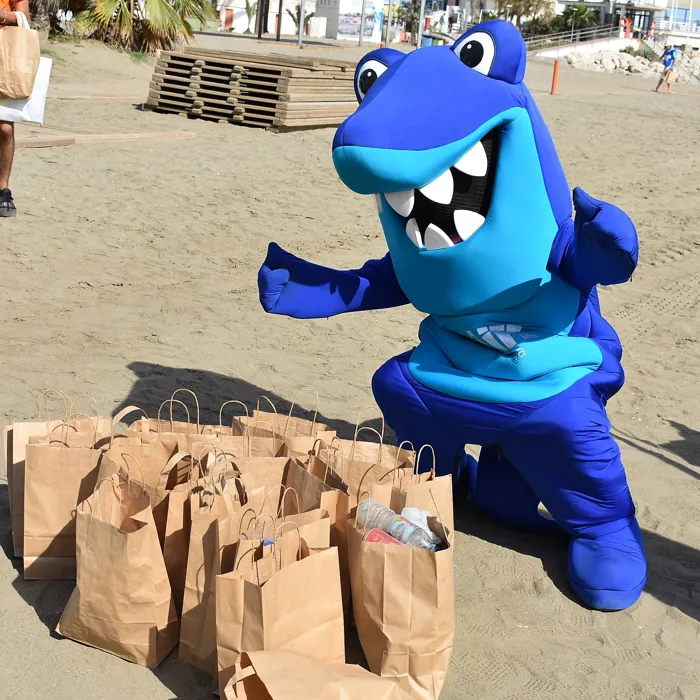Our Oceans!
Healthy Oceans, Healthy Planet!
The oceans cover about two-thirds of the surface of the Earth and are the very foundations of life. They generate most of the oxygen we breathe, absorb a large share of carbon dioxide emissions, provide food and nutrients, regulate climate, and are important economically for countries that rely on tourism, fishing and other marine resources for income.
Unfortunately, human pressures, including overexploitation , illegal unreported and unregulated fishing, destructive fishing, as well as unsustainable aquaculture practices, marine pollution, habitat destruction, alien species, climate change and ocean acidification are taking a significant toll on the world´s oceans and seas.
We need your help, all together can make a difference!






World Oceans Day
World Oceans Day # 24HourGlobalBeachClean From @ SeaLifeBenalmádena and @SeaLifeTrust
we want to collaborate with our oceans by eliminating harmful garbage from our beach.

Invasive algae
A study on the effects of invasive algae on the Mediterranean coastline is being promoted
Sea Life Benalmádena has taken part in a study on the effects of invasive algae in the Mediterranean Sea, and more specifically on the coast of Malaga. The aim "is to check how it affects the conservation of the flora and fauna of the affected areas, how its manipulation can affect humans, and the possible uses that can be given to it with a view to a more sustainable activity".
The study, they have detailed, tries to find areas colonised by the algae and see its progression after a year, identifying marine areas on the coast of Malaga that have been invaded by this algae and the reaction of the native species.
In this aspect of the more local flora and fauna it is too early to draw precise conclusions, but everything points to the fact that this invasive algae alters the support and habitat of the native communities.




Did you know.....?
- Oceans cover three quarters of the Earth´s surface; contain 97 per cent of the Earth´s water.
- Over three billion people depend on marine and coastal biodiversity for their livelihoods.
- Oceans contain nearly 200.000 identified species, but actual numbers may lie in the millions.
- Oceans absorb about 30 per cent of carbon dioxide produced by humans, buffering the impacts of global warming.
- Oceans serve as the world´s largest sources of protein.
- As much as 40 per cent of the world oceans are heavily affected by human activities, including pollution, depleted fisheries, and loss of coastal habitats.
We need your help!
SIMPLE THINGS CAN MAKE A DIFFERENCE
- Reduce, reuse and recycle.
- Take part in beach/ litter cleans.
- Choose sustainably sourced seafood.
- Say no to plastic straws and stirrers.
- Always use a reusable bag or bottle.
- Use a reusable coffee cup.